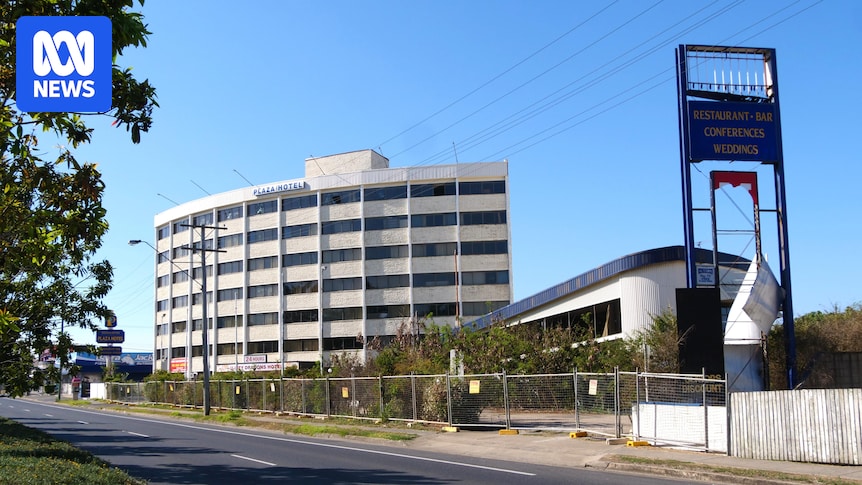
As Queensland grapples with a housing shortage, the looming 2032 Olympic Games have intensified the need for more accommodation in Rockhampton and Yeppoon. The region’s tourism organizations and local councils are now eyeing abandoned properties as potential solutions.
According to the Australian Bureau of Statistics, 192,393 properties were vacant on Census night in 2021, representing 8.7% of the state’s total dwellings. In Rockhampton, the seven-story Plaza Hotel, with its 66 rooms, has been intermittently closed over the past decade, much to the frustration of local officials.
Vacancy Rates and Housing Challenges
Rockhampton Regional Council’s Grant Mathers expressed his concerns about the wasted potential of these empty rooms. “Unfortunately, it doesn’t send a good message at all. Everyone is dealing with homelessness, people sleeping in the parks and on the streets,” Mathers stated.
The Real Estate Institute of Queensland (REIQ) reported that 34 out of 50 regions in the state, including Rockhampton, have a rental vacancy rate at or below 1%. Rockhampton’s rate stands at a mere 0.7%.
“Most parts of regional Queensland are sitting at well below what we consider to be a healthy range, [which is] one that sits between 2.6 up to 3.5 per cent, whereas most parts of regional Queensland and central Queensland in particular are sub 1 per cent,” said REIQ CEO Antonia Mercorella.
Potential Solutions and Legal Hurdles
While the community suggests converting hotels into permanent rental accommodations, Mercorella points out the complexities involved. “The hotel may not be licensed for that purpose, and there could also be zoning and other council-related regulations that could prevent that,” she explained.
In response to the situation, Rockhampton’s council has pursued legal action against the owners of the closed Plaza Hotel, securing a Public Health Order for the site’s cleanup. Mathers noted the necessity of such measures, despite the challenges they pose to private property rights.
Tourism and Short-Term Accommodation Needs
Tourism operators are equally concerned about the lack of short-term accommodation, a pressing issue with the 2032 Olympics on the horizon. Mary Carroll, CEO of Capricorn Enterprise, highlighted the frustration over unused freehold land and properties.
The Capricorn Resort in Yeppoon, which closed in 2016, has left 331 rooms deteriorating. Independent research by Tourism Events Queensland last year indicated that 1,219 short-term accommodation rooms are needed in the Rockhampton and Capricorn Coast region before 2032.
“We are desperate for these new short-term rooms because I’m losing short-term accommodation in unit complexes to long-term bookings,” Carroll said.
Impact of Major Infrastructure Projects
Much of the existing accommodation is occupied by fly-in fly-out workers involved in major construction projects like the $1.98 billion Rockhampton Ring Road and the $983 million Fitzroy to Gladstone pipeline. Carroll emphasized the competition for available rooms, especially with Rockhampton now hosting the 2032 Olympic rowing and canoe sprint events.
With high occupancy rates throughout the year, the region is anxiously awaiting updated research to determine the true extent of its accommodation needs.
Looking Ahead to 2032 and Beyond
As Queensland prepares for the Olympics, the need for innovative solutions to housing and accommodation challenges becomes increasingly urgent. Mercorella stressed the importance of strategic planning to ensure both the success of the event and the well-being of local residents.
“We really need to be thinking about how we’re going to be creative about ensuring that we have adequate accommodation,” she said. “We’ll need to think very carefully about how we’re going to ensure that this event is a success, and how we can continue to house our local population as well as some of those visitors who will be more transient in nature.”
The path forward involves navigating complex regulatory landscapes and balancing the needs of permanent residents with the influx of visitors expected for the Olympics. As the clock ticks down to 2032, Rockhampton and Yeppoon must find sustainable solutions to their accommodation crisis.







